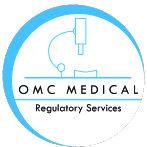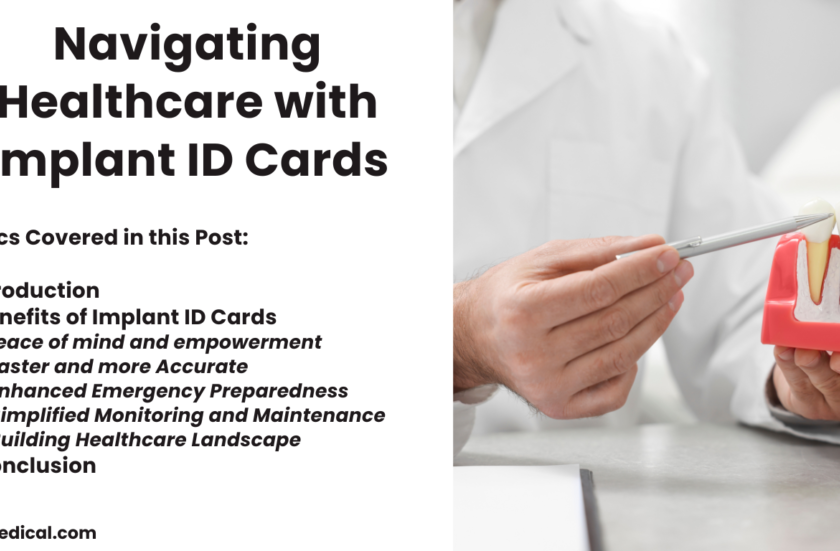Implant ID Cards Introduction
Implanted medical devices, from life-saving pacemakers to pain-relieving joint replacements, are transforming how we manage health conditions. However, carrying these technological marvels within our bodies presents a unique challenge: readily accessing critical information about them when seeking medical care. This is where the power of implant ID cards comes into play.
Think of these cards as miniature medical passports, discreetly holding a wealth of knowledge about your implants. They typically store essential details such as the device name, type, unique identification number, manufacturer information, implantation date, and even the name of the implanting physician. This seemingly simple card becomes a powerful tool, empowering you to navigate the healthcare system confidently and efficiently.
Why are implant ID cards so invaluable?
There are various benefits of implant ID Cards, these are:
1. Peace of mind and empowerment
No more scrambling to recall intricate details during doctor’s appointments or stressful emergencies. The card readily equips you with the information healthcare professionals need, fostering a sense of control and ownership over your health journey.
2. Faster, more accurate care
Imagine arriving at a new clinic and having your complete implant history instantly available. This eliminates time-consuming information gathering, minimizing the risk of errors and delays in treatment. Your doctor can quickly assess any potential interactions with your implants and tailor treatment plans accordingly.
3. Enhanced emergency preparedness
Every second counts when facing critical situations. Implant ID cards provide life-saving information to first responders and medical teams, ensuring immediate compatibility with essential equipment and procedures. This difference can be between a swift response and a potentially life-threatening delay.
4. Simplified monitoring and maintenance
Certain implant types require ongoing monitoring and potential adjustments. The card facilitates smooth communication between you and your healthcare providers, enabling proactive management of your implant’s performance and optimizing long-term outcomes. You can receive timely alerts about potential issues and easily schedule necessary adjustments.
5. Building a connected healthcare landscape
Beyond individual benefits, implant ID cards contribute to a more interconnected and collaborative healthcare system. Their standardized format enables seamless data exchange between hospitals, clinics, and even across national borders.
This paves the way for personalized care pathways, remote monitoring capabilities, and improved overall communication within the healthcare network.
So, how can you access this valuable tool? If you have an implanted medical device, simply ask your doctor for an implant ID card. Most hospitals and clinics now routinely issue them to their patients. You can also find more information and resources on the websites of relevant national health organizations or international bodies like the European Commission.
Conclusion
In conclusion, implant ID cards are not merely passive information carriers; they are powerful enablers for a smoother, safer, and more personalized healthcare experience. As their adoption grows, they hold the potential to revolutionize the way we manage medical implants, empower patients, streamline healthcare systems, and ultimately build a brighter future for all.







